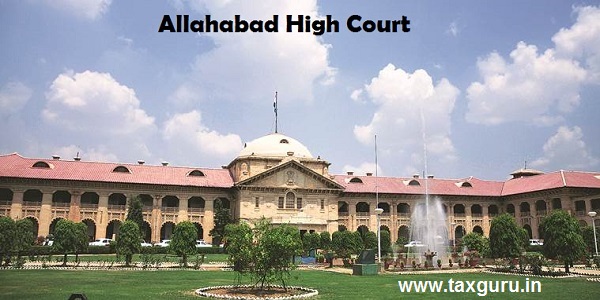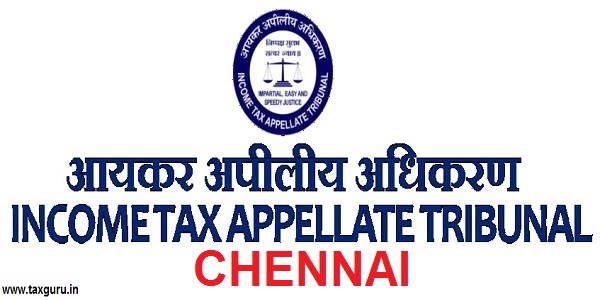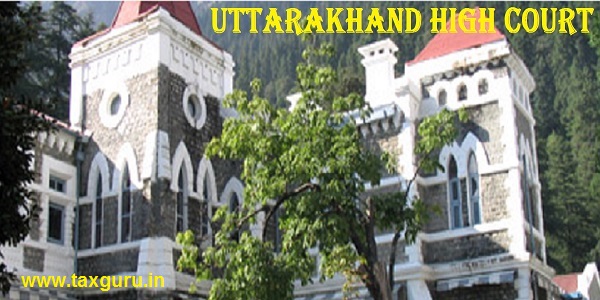Case Law Details
DCIT Vs Jaypee Sports International Ltd. (ITAT Delhi)
Conclusion: TDS u/s 194H was not applicable to bank guarantee commission as the same did not fall into clause (i) of Explanation to section 194H and exemption was provided under section 194A(2)(iiia) in respect of any payment made to any banking company to which any Banking Regulation applies.
Held: Bank guarantee commission could not be subjected to TDS under section 194H as the same did not fall into clause (i) of Explanation to section 194H and also assessee in present case was not acting as an agent but on principal-to-principal basis. Also exemption is provided under section 194A(2)(iiia) in respect of any payment made to any banking company to which any Banking Regulation applies.
FULL TEXT OF THE ITAT JUDGEMENT
Present appeal has been filed by revenue against order dated 27/03/15 passed by Ld. CIT (A)-2, Noida for assessment year 2011-12 on following grounds of appeal:
“1) Whether on the facts and in the circumstances of the case, the Ld. CIT (A) has erred in holding that the provisions of section 40 (a)(ia) are not applicable where the expenditure in question is capitalized and no deduction of such expenditure has been claimed while computing business income.
a) The Ld. CIT (A) has erred in not appreciating the fact that :
i) The section 40 (a)(ia) begins with a non-obstante clause and it has an overriding effect on the provisions of section 30 to 38.
ii) The word “expenditure’’ has not been defined in the Act. It is word of wide amplitude and takes within its ambit any amount which has the effect on the debit side of the P&L account. Even capitalized amounts have such effect on the P&L account, albeit in the year when allocation out of such capital expenditure is made against the profits.
iii) Deduction of an expenditure may or may not be claimed by direct debit in the P&L account. Where an expenditure is capitalized in an year, it does not mean that it is not being claimed as a deduction, only the time of deduction is deferred. It will be claimed as a deduction in the year when the corresponding income is recognized.
iv) There is nothing in the provision which suggests that the provision is applicable only where the expenditure in question has been charged to the P&L account of a particular year. The expenditure which is capitalized in any year under “work-in- progress” etc. is ultimately charged to the P&L account when the corresponding income is recognized in a subsequent year. Therefore, such outgo/expenditure, if not out rightly disallowed or added to the P&L account, is liable to be reduced from “work-in-progress” or the capital account, which would be a mode of giving effect to the provisions of section 40(a)(ia).
v) All outgoings, regardless of whether capital or revenue in nature, are meant to be covered by the word “expenditure” for the purpose of this section, only the mode of giving effect to the provision of section 40 (a)(ia) shall be different.
2) Whether on the facts and in the circumstances of the case, the Ld. CIT (A) has erred in holding that the amount of Rs. 2,51,17,344/- received by the assessee from M/s Formula One Management Limited was not liable to be treated as business income in the hands of the assessee for the year under assessment.
3) The appellant prays for leave to add, amend, modify or alter any grounds of appeal at the time or before the hearing of the appeal.”
2. Brief facts of the case are as under:
Assessee filed its return of income on 20/09/11, declaring ‘nil’ income. The same was processed under section 143(1) of the Act, and case was selected for scrutiny. Accordingly, notice under section 143(2) of the Act was issued. Thereafter, notice under section 142(1) along with questionnaire was issued to assessee.
In response to statutory notices, representative of assessee appeared before Ld. AO and filed necessary details which were placed on record.
2.1 Ld.AO observed that assessee is engaged in business to develop facilities of international standard for sports and recreation activities. Ld.AO called upon assessee to furnish information regarding the activities carried on by assessee. During course of TDS survey, it was found that assessee made payment of interest, lease rent and commission to various parties on which assessee should have to deduct TDS. After verifying details filed by assessee Ld.AO held that, no deduction could be allowed to assessee and was liable to be disallowed under provisions of section 40(a)(ia) of the Act. Ld. AO accordingly made following addition under section 40(a)(ia) of the Act:
| Interest paid to YEIDA | Rs. 51, 08, 02, 728/- |
| Bank guarantee commission | Rs.1, 13, 06, 210/- |
| Lease rent | Rs. 23, 05, 98, 619/- |
2.2 Apart from above Ld.AO also made addition amounting to Rs.2,51,19,000/-, received from Formula One Management Ltd. 2.3 Aggrieved by additions made by Ld.AO, assessee preferred appeal before Ld. CIT (A) who deleted additions.
Aggrieved by order of Ld. CIT(A), Revenue is in appeal before us.
3. Ground No.1 is in respect of additions that is deleted by Ld. CIT (A) under section 40(a)(ia) of the Act.
4. Ld. Sr. DR placed reliance upon the orders of authorities below as well as order dated 31/08/17 passed by coordinate bench of this Tribunal in assessee’s own case for assessment year 2011-12 to 2013-14 in ITA No. 4279 -4281/del/2015.
5. Ld. AR submitted that, none of these expenses were charged to profit and loss account, as no revenue was recognised during the year under consideration. He submitted that Ld.AO has erred in disallowing these payments under section 40(a)(ia) of the Act without considering the fact that, these payments has not yet been charged to the profit and loss account as taxable income of assessee.
6. We have perused the submissions advanced by both sides in light of records placed before us. We have also perused order passed by this Tribunal dated 31/08/17 passed by Coordinate bench (supra), in assessee’s own case placed at page 32-51 of paper book.
7. It is observed that this Tribunal considered demand raised by Ld.AO under section 201(1) and section 201 (1A) of the Act, for assessment year 2011-12 in case of assessee.
7.1 We do not agree with the argument advanced by Ld. AR that, as expenses were not charged to Profit and Loss Account due to no revenue recognition, no disallowance could be made. Income tax Act is very clear/specific regarding the time when TDS needs to be deducted. The statute requires TDS to be deducted at the time of credit of such income to the account of payee or at the time of payment thereof whichever is earlier.
7.2 We are, therefore, of the considered opinion that TDS should have been deducted as the case may be. We, therefore, give following analysis regarding applicability of TDS provisions on each of the three items under consideration.
(i) Lease rent paid by assessee to Yamuna Expressway Industrial Development Authority Ltd. (YEIDA) amounting to Rs. 23,05,98,619/-
It is observed that lease rent paid by assessee has been considered by this Tribunal and is covered in favour of revenue by following decision of Hon’ble Delhi High Court in case of Rajesh Projects (India) Pvt. Ltd vs. CIT reported in (2017) 78 Taxman 263, wherein Hon’ble court observed as under:
“20. In view of the above analysis, the court hereby concludes as follows:
(1) Amounts paid as part of the lease premium in terms of the time-schedule(s) to the Lease Deeds executed between the petitioners and GNOIDA, or bi-annual or annual payments for a limited/specific period towards acquisition of lease hold rights are not subject to TDS, being capital payments;
(2) Amounts constituting annual lease rent, expressed in terms of percentage (e.g. 1%) of the total premium for the duration of the lease, are rent, and therefore subject to TDS. Since the petitioners could not make the deductions due to the insistence of GNOIDA, a direction is issued to the said authority (GNOIDA) to comply with the provisions of law and make all payments, which would have been otherwise part of the deductions, for the periods, in question, till end of the date of this judgment. All payments to be made to it, henceforth, shall be subject to TDS.
(3) Amounts which are payable towards interest on the payment of lump sum lease premium, in terms of the Lease which are covered by Section 194-A are covered by the exemption under Section 194A (3) (f) and therefore, not subjected to TDS.
(4) For the reason mentioned in (3) above, any payment of interest accrued in favour of GNOIDA by any petitioner who is a bank – to the GNOIDA, towards fixed deposits, are also exempt from TDS.
21. In view of the above conclusions, it is hereby directed that wherever amounts have been paid by the petitioners, towards TDS as a result of the coercive process used by the Revenue, the GNOIDA shall make appropriate orders to credit/reimburse such payments. In case payments are made through deposit, over and above the rental amounts paid to the GNOIDA, without TDS, the income tax authorities shall not pursue any coercive proceedings; GNOIDA shall duly reimburse the petitioners for such amounts. Any amounts deposited in the court or with the Revenue, shall, to the extent of TDS liability only be appropriated for such purpose. It is clarified that GNOIDA shall ensure that reimbursement is made to compensate the petitioners’ excess payments; the income tax authorities shall not pursue any coercive methods for recovery of the amounts, or penalty, once the basic liability (with interest, to be paid by GNOIDA) is satisfied. The impugned orders are quashed; the Revenue shall make consequential orders, to give effect to this judgment, after duly hearing the petitioners and those likely to be affected, within 12 weeks from today.”
7.3 The afore stated view by Hon’ble Delhi High Court has been affirmed by Hon’ble Supreme Court in case of New Okhla Industrial Development Authority vs CIT reported in (2018) 95 Taxman 80.
8. It is observed that co-ordinate bench of this Tribunal in assessee’s own case (supra), held TDS ought to be deducted on lease rent, by following decision of Hon’ble Delhi High Court in case of Rajesh Projects (India) Pvt. Ltd vs. CIT (supra).
8.1 Accordingly, respectfully following Hon’ble Delhi High Court in case of Rajesh Projects (India) Pvt. Ltd vs. CIT (supra), we hold that, TDS needs to be deducted on lease rent.
(ii) Interest paid to Yamuna Expressway Development Authority, amounting to Rs.51,08,02,728/-:
9. It is observed that coordinate bench of this Tribunal (supra) held that, payment of interest to YIEDA is covered by decision of Hon’ble Allahabad High Court in case of CIT vs Canara Bank, reported in 386 ITR 504, wherein it has been held that, NOIDA is a Corporation established by Uttar Pradesh Industrial Area Development Act 1976(YIEDA), and therefore assessee was entitled to exemption of payment of tax at source under section 194A of the Act. This Tribunal held that YIEDA also constitute an Authority under State Act, and therefore, is covered by above referred decision of Hon’ble Allahabad High Court.
However, in our considered opinion recently Hon’ble Supreme Court in case of New Okhla Industrial Development Authority vs CIT reported in (2018) 95 Taxmann 80, held as under:
“52. It is also relevant to notice that this Court in Gujarat Industrial Development Corporation v. CIT [1997] 94 Taxman 64/227 ITR 414 after considering the provisions of Section 10(20A) of I.T. Act held that Gujarat Industrial Development Corporation is entitled for exemption under Section 10(20A). The Gujarat Industrial Development Corporation was held to be entitled for exemption under Section 10(20A) at the time when the provision was in existence in the statute book and after its deletion from the statute book the exemption is no more available. Now, reverting back to Section 10(20) as amended by Finance Act, 2002, the same has also come for consideration before different High Courts. A Division Bench of the Allahabad High court in Krishi Utpadan Mandi Samiti v. Union of India [2004] 139 Taxman 258/267 ITR 460 stated following:
‘A bare perusal of the Explanation of Section 10(20) shows that now only four entities are local authorities for the purpose of Section 10(20), namely, (i) Panchayat, (ii) Municipality; (iii) Municipal Committee and District Board; (iv) Cantonment Board Krishi Utpadan Mandi Samiti is not one of the entities mentioned in the Explanation to Section 10(20).
It may be noted that the Explanation to Section 10(20) uses the word ‘means’ and not the word ‘includes’. Hence, it is not possible for this Court to extend the definition of ‘local authority ‘ as contained in the Explanation to Section 10(20), vide P. Kasilingam v. P.S.G. College of Technology, AIR 1995 SC 1395 (para 19). It is also not possible to refer to the definitions in other Acts, as the IT Act now specifically defines ‘local authority’.
It is well settled that in tax matters the literal rule of interpretation applies and it is not open to the Court to extend the language of a provision in the Act by relying on equity, inference, etc.
It is the first principle of interpretation that a statute should be read in its ordinary, natural and grammatical sense as observed by the Supreme Court of India:
“In construing a statutory provision the first and foremost rule of construction is the literary construction. All that the Court has to see at the very outset is what does the provision say. If the provision is unambiguous and if from the provision the legislative intent is clear, the Court need not call into aid the other rules of construction of statutes. The other rules of construction are called into aid only when the legislative intent is not clear” vide Hiralal Ratanlal v. STO, AIR 1973 SC 1034; ‘
53. A Division Bench of the Delhi High Court also in Agricultural Produce Market Committee v. CIT [2006] 156 ITR 286/[2007] 294 ITR 549 had occasion to consider Section 10(20) as amended w.e.f. 01.04.2003 where the High court in paragraph 8 has stated the following:
‘8. The most striking feature of the Explanation is that the same provides an exhaustive meaning to the expression “local authority”. The word “means” used in the Explanation leaves no scope for addition of any other entity as a ‘local authority’ to those enlisted in the Explanation. In other words, even if an entity constitutes a ‘local authority’ for purposes of the General Clauses Act, 1897 or for purposes of any other enactment for that matter, it would not be so construed for purposes of section 10(20) of the Act unless it answers the description of one of those entities enumerated in the Explanation. Mrs. Ahlawat did not make any attempt to bring her case under clauses (i), (ii) and (iv) of the Explanation and in our opinion rightly so because the appellant committee cannot by any process of reasoning be construed as a Panchayat as referred to in clause (d) of Art. 243 of the Constitution of India, a municipality in terms of clause (e) of Art. 243P of the Constitution of India or a Cantonment Board as defined under section 3 of the Cantonments Act, 1924. What she argued was that looking to the nature of the functions enjoined upon the appellant committee, it must be deemed to be a municipal committee within the meaning of that expression in clause (iii) of the Explanation. We regret our inability to accept that submission. We say so for two distinct reasons. Firstly because the expression “municipal committee” appears in a taxing statute and must, Therefore, be construed strictly. It is fairly well-settled by a long line of decisions rendered by the Supreme Court that while interpreting a taxing statute, one has simply to look to what is clearly stated therein. There is, in fiscal statutes, no room for any intendment nor is there any equity about the levy sanctioned under the same. The following passage from Cape Brandy Syndicate v. IRC 1921 (1) KB 64 has been approved by the Apex Court in the decisions rendered by their Lordships.
“in a taxing Act one has to look merely at what is clearly said. There is no room for any intendment. There is no equity about a tax. There is no presumption as to a tax. Nothing is to be read in, nothing is to be implied, One can only look fairly at the language used.” ‘
54. We fully endorse the views taken by the High Court in the above two judgments.
55. Now, reverting back to Explanation to Section 10(20), these are entities which mean the local authority. The submission of the appellant is that the appellant is covered by Clause (ii) of the Explanation i.e. “Municipality as referred to in clause (e) of Article 243P of the Constitution”. We, while discussing above provisions, have already held that the appellant is not covered by the word/expression of “Municipality” in clause (e) of Article 243P. Thus, the appellant is not clearly included in sub-clause (ii) of Explanation. It is not even the case of the appellant that the appellant is covered by Section 10(20) except clause (ii).”
10. Considering present legal position, insofar as definition of, who would constitute an “Authority”, in our considered opinion decision of Hon’ble Allahabad High Court cannot be applied, due to ratio laid down by Hon’ble Supreme Court in case of New Okhla Industrial Development Authority vs CIT (supra).
11. Accordingly, respectfully following ratio laid down by Hon’ble Supreme Court in case of New Okhla Industrial Development Authority vs CIT (supra), we hold that TDS needs to be deducted on interest paid to YEIDA.
(iii) Bank guarantee commission amounting to Rs.1,13,06,210/-
12. It is observed that Coordinate Bench of this Tribunal (supra) relying upon decision of Hon’ble Delhi High Court in case of CIT vs. Living Media India Ltd., order dated 06/05/08, held that, bank guarantee commission cannot be subject to withholding of tax under section 194H of the Act, as it does not fall into clause (i) of Explanation to section 194H and further that assessee was not acting as an agent but on principle to principle basis. Further u/s 194A(2)(ii)(a) there is an exemption provided in respect of any payment made to any banking company to which any Banking regulation apply.
12.1 We agree with aforestated view. Assessee in present case paid commission to bank not as an agent.
12.2 Accordingly, we hold that there was no need to deduct TDS on the Bank Guarantee Commission paid by assessee to Bank. Accordingly this ground raised by revenue stands allowed partly.
13. Ground No.2 is regarding addition of Rs.2,51,17,344/-being deleted by Ld.CIT(A).
14. During assessment proceedings, Ld.AO observed that there is difference in amount of TDS as per 26AS. Upon a query being raised by Ld.AO, assessee replied that it had received advance of Rs.2,51,19,000/- from Formula One Management Ltd., towards hotel booking hiring of cars etc., for Grand Prix in India, during year under consideration It was also submitted that TDS amounting to Rs.25,11,900/- was deducted on such advance. Ld.AO rejected submission of assessee and held amount received by assessee as income of assessee being its contractual receipts, and granted credit of TDS of Rs.25,11,900/-.
15. Aggrieved by order of Ld.AO, assessee preferred appeal before Ld.CIT(A), who deleted addition holding that Ld.AO was not justified in treating advance received of Rs.2,51,17,344/- from Formula One Management Ltd., since it was received for specific purpose of booking of hotel and deleted addition.
16. Aggrieved by order of Ld.CIT(A), Revenue is in appeal before us now.
The Ld. Sr. DR relied upon order of Ld.AO and submitted that, without verifying the nature of income offered by assessee, Ld.CIT(A) deleted the addition.
17. Ld. AR relied upon order of Ld.CIT(A).
18. We have carefully considered submissions advanced by both sides in light of records placed before us.
19. On verification of facts, it reveals that assessee received Rs.2,51,17,344/-, on which TDS of Rs.25,11,900/- has been deducted. Ld. CIT(A) without verifying any details deleted addition, by holding that no income against advance accrued to assessee. Ld.CIT(A) also failed to note that advance has been received for services which are to be rendered in next year. It is the fact that assessee received money and did not offer to tax during the year under consideration, stating that, it is advance received. However, Ld.CIT(A) failed to observe that advance received, must have culminated in subsequent year as income of assessee. Therefore, in our considered opinion, it is required to be verified, in which year, the same income as been offered by assessee for income tax purposes.
20. We, therefore, set aside whole issue to Ld.AO, with a direction to assessee to prove before Ld.AO to verify whether the same income as been offered for taxation in subsequent year. Accordingly, this ground raised by revenue stands allowed for statistical proposes.
In the result appeal filed by revenue stands partly allowed for statistical purposes.





























